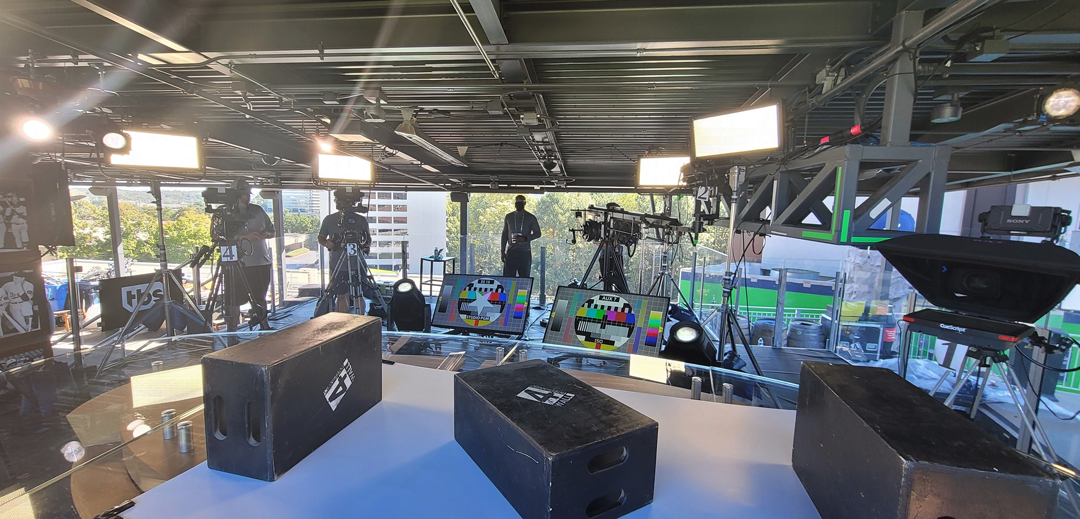Chauvet panels back National League play-offs
- Details

Perhaps because of this, Mike Grabowski and the team at The Lighting Design Group were ready for anything when the Braves began their playoff against the favoured Milwaukee Brewers. Their interest, or course, involved more than baseball; as they were tasked with lighting the pre and post-game commentary for the National League Championship Series, between the winners of the Braves-Brewers and Dodger-Giants clashes.
“It was a bit of an unusual situation,” said Grabowski. “We didn’t know where we’d be going to light the first game of the NLCS, because of the way the baseball playoffs work. As things turned out we didn’t learn we’d be working in Atlanta until the Dodgers beat the Giants (had the Giants won, the first game would have been in San Francisco). That was less than 48 hours before the first pitch of Game 1 was thrown.”
Given the tight time frame, The Lighting Design Group had gear ready in both locations. Featured in each of the 4Wall Entertainment supplied rigs were seven of the new Chauvet Professional onAir IP Panel 2 soft light fixtures, as well as groups of Maverick Storm 1 Wash units.
Arriving at Atlanta’s Truist Park stadium, the design team encountered a surprise. Instead of the 11’ square truss they were expecting to find over the 20’x20’ indoor/outdoor stage, they found something a bit shorter.
“Some of the dimensions we had to work within were off,” said Grabowski. “So we got cameras up and cut all of our truss. Then, we had to reach deep into our bag of tricks and rig off of some of the stadium’s structure steel and transition the rig to stands.
“Thankfully, by that point we knew we only needed to have enough level for a late evening/nighttime broadcast, so we could get away with a lot less output,” continued Grabowski. “The OnAir2 panels became the crux of our rig in that scenario. They carried pretty much everything, with a little bit of ellipsoidals used to key in and get a little specificity of the level for each host.”
Wrapped around the stage in Atlanta and later in Los Angeles, the onAir IP Panel 2 units were used for dead on front-fill, side-fill and upstage cross lighting. “They were invaluable,” said Grabowski. “Not only are they very bright, but they have excellent dimming and colour rendition. The other huge thing is their IP65 rating. I mean, there are the obvious benefits, since if it rains, the gear is fine. But it’s also a great time saver at the end of the night, since the crew isn’t spending a ton of time bagging and wrapping all of the units. This speeds things up at the end of the night and start of the next day. I think this is a slightly overlooked benefit of IP65 rated gear.”
Deftly using the soft light panels and the rest of his rig, Grabowski balanced his design to ensure smooth, even key lighting for the talent on stage, while also adding a warmer more evocative element to the broadcasts by accenting the live stadium background.
The six-game series was won by the Atlanta team, earning them their first pennant in 22 years. (Later they would defeat the Houston Astros to win the World Series as well.) Grabowski credits the Lighting Design Group team including senior project manager David Cook, Gaffer Seán Linehan, and Best Boy Evan Cope with helping to accomplish this feat.















